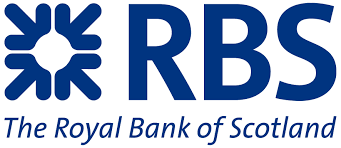What are Bridging Loans Secured against? can a Bridging Loan be used for any type of property?
Bridging Loan Rates
Amounts are From £25k to £10m
Terms can be for 1 week to 2 years
Interest from 4% pm
Loans anywhere in the UK
Bridging Loan rates
Interest Rates From UK Lenders
80+ Lenders with over 500 Loans
Always the best deals
We offer to get you the best
Deals on Interest Rates & Deals
Guranteed Lowest Rates




Our Bridging Loan Offer
Property Types
Bridging Terms
"Zara arranged my Bridging Loan with the minimum amount of fuss and was always their to take my call great service from start to finish"
"would recommend five stars Zara pushed to get the loan over the line 100% very experienced and worked with me all the way to get completion


Gary James
Julie Livingstone




3,000+
HAPPY
CUSTOMERS
15+
YEARS OF
SERVICE
3,000+
BRIDGING
LOANS
550+
5 STAR
REVIEWS

Compare All UK Bridging Loans
Enter A Loan Amount
Get Your Rates Now!
Bridging Loan.co.uk is a trading name of Top 10 finance Ltd is authorised by The Financial Conduct Authority (FCA) no 725234 The FCA Think Carefully before securing debts against your home. Your property could be repossessed if you do not keep up repayments on your mortgage or any other debt secured on it. We are registered and comply with the Data Protection Act (1998). Registration No: Z2861884 Company registered in England number 06261373. Privacy Policy







Start Here...
Call us 24/7 0800 138 6001

What security can Bridging Loans be secured against?
A bridging loan is a financial product that is offered for a short period of usually no more than 12-18 months at the very maximum, unlike personal finance bridging loans have to be secured against an asset, which in almost all cases is a Property, although they can also be secured against another type of asset, providing the lender feels comfortable with the asset on offer, however, property is the main choice for nearly all bridging companies, the property can be either freehold or leasehold both are acceptable to a lender even leaseholds with a short term of up to a few years, often investors will buy a short lease with a bridging loan and then use the bridging finance to pay for the lease extension at which point they would either sell the property on or take out a mortgage, this is a good use for bridging as once a lease drops below 60 years it is not possible to find a mortgage easily.
The types of properties suitable for a bridging loan are as follows:
Residential Properties
Residential property is what most bridging loans are secured against they can be houses, flats or homes of multiple occupancies, the reasons lender prefer residential property as security, is that if they encounter problems and are forced to sell the property to recoup their money, then residential is by far the easiest property to sell, bridging loans are available on either a property that you live in or intended to live in it, they are also available on buy to let properties and also should you intend to sell the property after renovation. Because residential is a bridging loan lender's first choice to lend against then this type of property attracts the lowest interest rates
Commercial Properties.
Commercial properties are ok to secure a bridging loan against although freehold is preferred unless the lease is greater than 60 years, lenders will consider all types of commercial property however two exclusions that stand out are residential and nursing homes and the other is places of worship, any other type of property is deemed acceptable to secure the loan against, if the property has a tenant in place they would want to look at the terms of the lease and also the strength of the covenant, this would reflect the value of the property and length of time it would take to sell the property should they need to repay the loan at a later date, because commercial property can take longer to sell lenders factor this into the interest rates they charge and only in very rare circumstances will a lower rate be offered than for residential, it must also be said that within the commercial sector, lender also prefer bricks and mortar rather than industrial units, so offices, shops, hotels, they will lend on industrial if the deal is a low loan to value but generally it is the bricks and mortar deals they prefer.
Semi Commercial Properties
Semi commercial property is things such as live-work units, shops with residential upper parts, offices with some form of residential element to them, note, to be considered as semi-commercial a property must comprise at least 60% residentially so if you look at the floor area and had 1,000 square feet then 600 of the 1,000 would have to the residential portion with the remainder being commercial, the vast majority of semi-commercial properties are shops with flats above as these offer good investment opportunities they are quite saleable should a lender need to take the property to auction to get their money back, so whilst the interest rates offered on these are not quite as competitive as on full residential you can still get competitive rates.
Land with or without planning.
Bridging loans a available on land with the preferred choice being land that has planning permission preferable detailed permission, because a detailed permission tells you exactly what the planning is for then a lender can get an accurate idea of what the land is worth so it is easier to lend against, the problem with an outline permission is that it does not quantify the build area so a valuer would only ever be guessing at the final valuation, so a lender would be far more cautious when offering to fund land with only an outline permission, they would still be interested in lending but at a much lower loan to value, Bridging Loans are also lent against land without planning permission however when it comes to valuation hope value is not considered so the bridging loan would be at a loan to value based on the land value as it stands so if it was agricultural land then the value would be based on that fact, however once you achieve planning permission then the bridging loan would be based on the enhanced value and you could take more cash out.
Because bridging loans are secured against a property the lender only look towards the asset for their security and no proof of income is required also you can even get loans if you have bad or less than perfect credit. So to recap any property is ok to secure a bridging loan against with the exception of Care Homes or places of worship.
UK Bridging Loans are one of the UK’S leading bridging loan brokers and can search all of the loans on the market to source the perfect deal for your circumstances.
Contact us now to discuss your proposal and we can assure you of the very best advice and service, call us now 0800 138 6001 or use the contact form on this page to compare loans.
Compare Lenders Interest Rates & Deals
Residentail Flats & Houses
Commercial All Types
Semi-Commercial property
Land with or without PP
Home Page Bridging Loan Calculator Barclays Bridging Loan Calculator What Is A Bridging Loan Do I Qualify How Much Can I Borrow Re-Payment TSB Bridging Loans How Long to Get Bridging Interest Rates Bad Credit Loans Proof Of Income Use Of A Bridging Loan Types Of Property Ltd Companies Bridging Finance Natwest Bridging Loan Santander Bridging Loan Rates HSBC Bridging Loan Lloyds Bridging Loans Nationwide Bridging Finance RBS Bridging Loan Halifax Bridging Loans What Are The Risks Bridging Loan Companies Non-Status Loans How to Apply Bridging With A Mortgage Open Bridging Loan Closed Bridging Loans
What Is A Bridging Loan? What Is A Bridging Loan Repayment? What Can I Use A Bridging Loan For?
Bridging Loan Calculator What Are Bridging Loan Interest Rates? What Type of Property?
How Much Can I Borrow? Can I Get a Bad Credit Bridging Loans? Ltd Company Bridging Loans?
Do I Qualify For A Loan? How Long To Get The Loan? Do I Need Proof Of Income?
